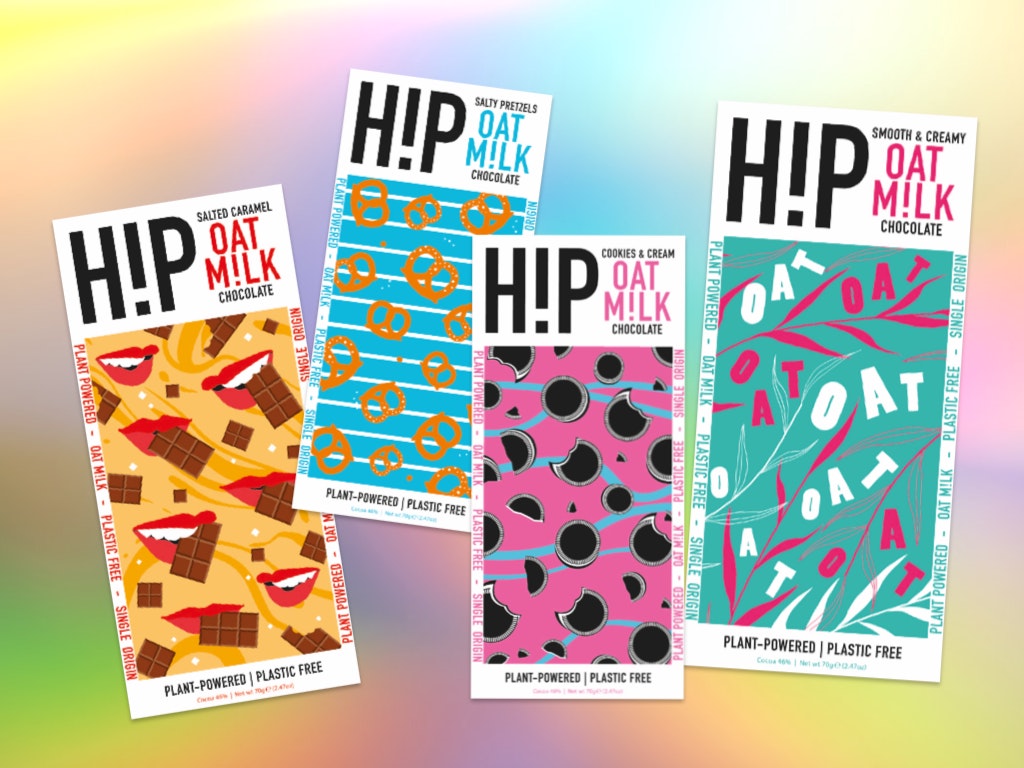3 Mins Read
Cargill has unveiled a new vegan chocolate line under the ExtraVeganZa brand and products are made using a slew of what the company calls “power ingredients”. The food giant says using sunflower kernel powder and rice syrup make their plant-based chocolate amongst the word’s best, nailing the creaminess that vegan confectionary often lacks.
The news comes after Cargill’s CEO David MacLennan attacked the plant-based sector in 2021. Despite fearing domestic “cannibalisation” of the U.S. meat industry, the company has made numerous forays into the dairy-free market.

Transforming the ingredients list
Cargill claims that the use of sunflower powder creates a smooth creaminess to its chocolate. Rice syrup adds the right balance of sweetness and a ‘snappy’ texture that confectionery aficionados are looking for. The result, according to Cargill, is a vegan sweet treat that “consistently outperforms regular chocolate”.
“We are the first major supplier to incorporate sunflower kernel powder into a vegan chocolate, a patent-pending innovation,” Vanessa Barey, chocolate product development manager for Cargill’s said in a statement. “These ingredients provide a distinctive taste and texture profile, enabling us to create vegan chocolate recipes that reimagine plant-based indulgence.”
The ExtraVeganZa line has been made free from nuts and gluten, setting itself apart from other brands, including Lindt, that have favoured nut pastes. The entire range can be used across a variety of applications, including baking. In a bid to comply with vegan requirements, specific production lines have been diverted to the ExtraVeganZa range in both Belgium and Germany.

Vegan chocolate on the up
A recent study carried out by Swiss chocolatier Barry Callebaut revealed that Millenial and Gen Z consumers expect brands to offer vegan options. Sixty percent said they expect alternatives to conventional chocolate to be widely available. In addition, 42 percent were happy to increase their weekly food budget to accommodate such purchases.
Brands have been clamouring to get a piece of the vegan chocolate action. Oat milk has proven to be a popular chocolate base. Numerous brands, big and independent, launched lines last year. Notable amongst them was HiP (Happiness in Plants), founded by a descendent of the Cadbury lineage. The company has sought to corner the market of unusual flavour profiles with Salty Pretzel being a favourite. Could sunflower powder be the next big trend? Nestlés vegan KitKat featured sunflower lecithin and used rice milk as a base, showing that development is ongoing throughout the sector.
Last November, Cadbury released its Plant Bar, an answer to vegan milk chocolate. Launch was delayed and then came under scrutiny. It was revealed that long-time plant-based Bournville had undergone a formulation change. The new addition of milk left consumers questioning if it was a deliberate move to push vegans towards the far pricier Plant Bar. The new release featured almond paste as a key ingredient, further upsetting nut allergy sufferers.
This year, Lindt unveiled a timely launch. Just in time for Veganuary, it brought out two new vegan milk chocolate options. Both the smooth and hazelnut styles are made using oat milk and nut paste.
Lead image courtesy of Cargill.





